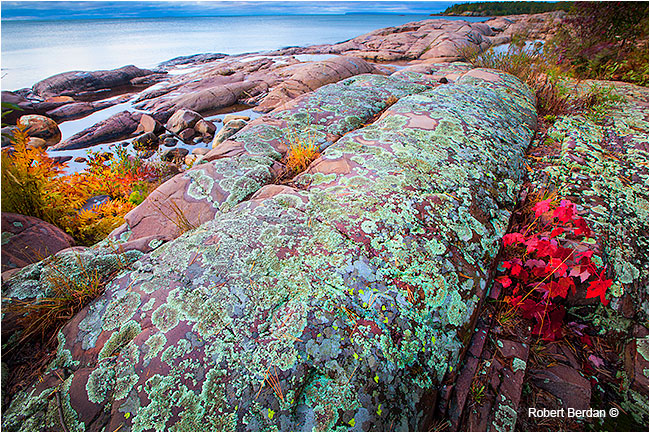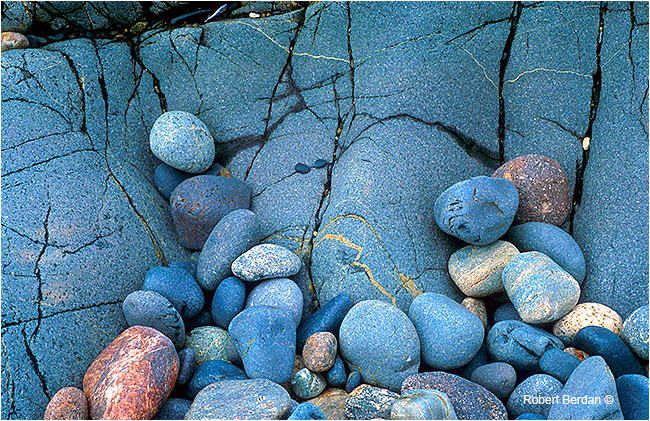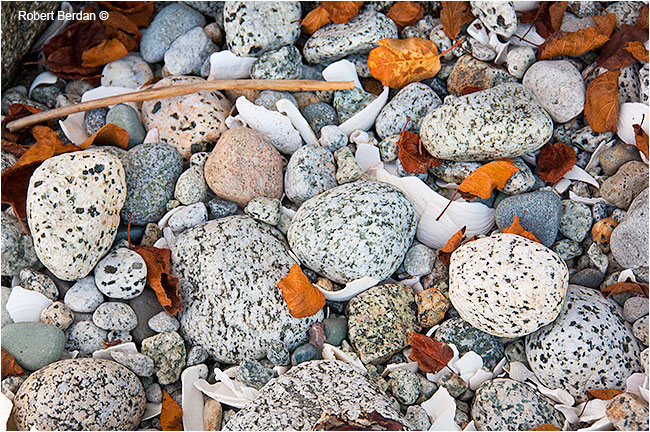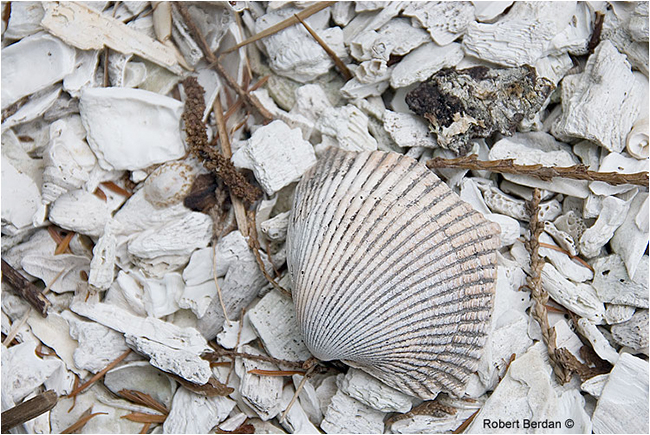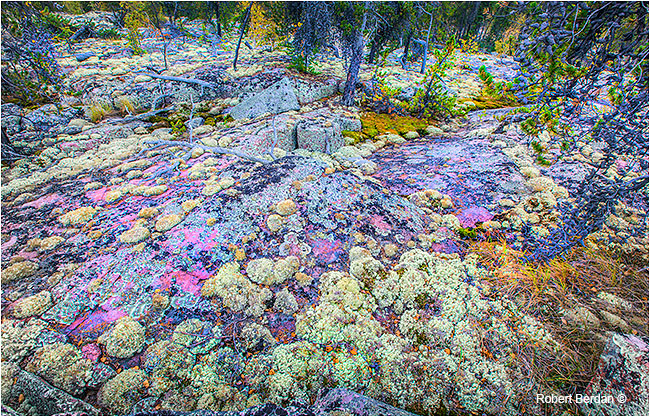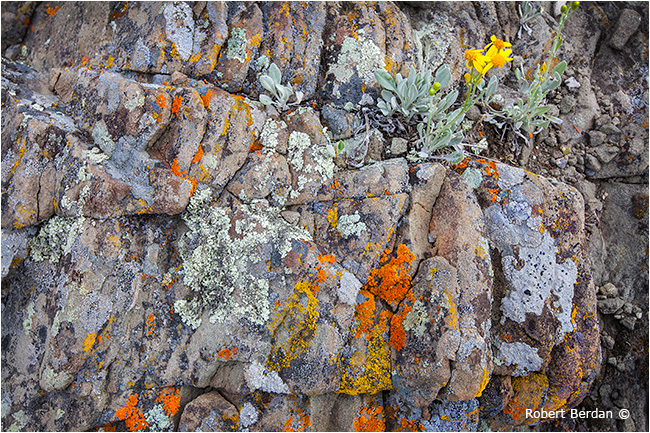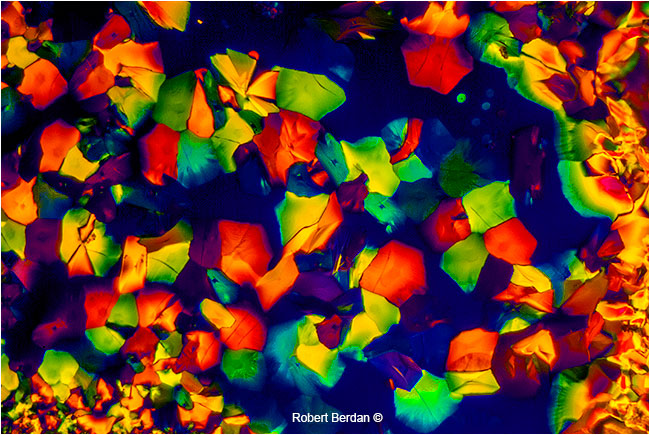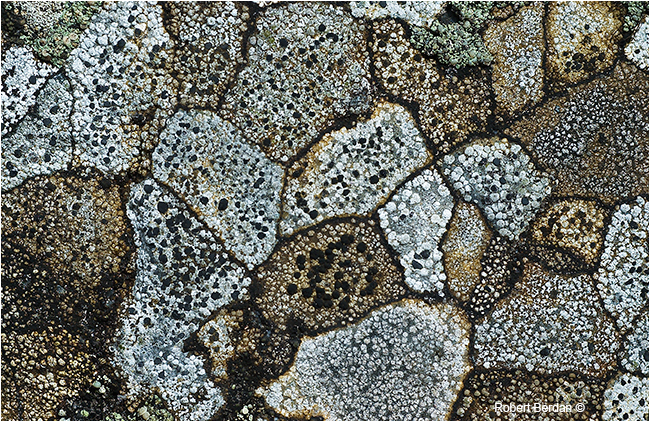
The Beauty of Rock Art
By Dr. Robert Berdan
December 23, 2012
Agawa Rock paintings, Lake Superior
The name Rock Art suggests rock walls that have been painted with pictographs or carved into (Pteroglyphs) and I have certainly photographed this type of art in several places in Canada, but in this article I am referring to the beauty that rocks and stones alone can demonstrate. I don't go out specifically to photograph rocks, but I am always looking for patterns, textures and shapes to capture with my camera. One of the best places to photograph different coloured stones along the coast line of any large lake or ocean. A macro lens is helpful, but almost any lens can be used. Sometimes it is the things that are growing on the rock, or out of it,that are of interest. Lichen and moss can be particularly interesting. Below are some of my favorite pictures of rocks and stones.
Granite rocks in Killarney National Park, Ontario are smooth with long striations carved by ancient glaciers. The rock is also covered in places with multicolored lichen.
Pebbles smoothed due to wave action along the Pacific coast.
Stones are piled up against a larger rock on the West Coast of Vancouver Island.
The photo above caught my attention because the smooth white granite stone was on a background of black kelp.
In the picture above the smooth round rocks on the sandy beach were covered with Barnacles.
Pebbles were found on the Beach along the Nootka trail on the West Coast of Vancouver Island.
These smooth stones were photographed in a shady area of the Beach, hence the strong blue light cast.
Multicolored rocks next to Lake Huron in Killarney Provincial Park, Ontario.
The action of moving water over thousands of years polishes the stones and makes them smooth and round resembling jewels. In fact anywhere you find smooth pebbles indicates the stones were once covered with water. It is possible to find similar smooth stones on the prairies.
Above are large round concretions thought to have formed at the edge of ancient ocean or sea. These are located at Red Rock Coulee south of Medicine Hat, Alberta and are throught to be some of the largest concretions in the world. If interetested in more informatuib and photographs of Red Rock Coulee see the links below.
Black and white stones were photographed while on a kayaking trip to the Broughton Archipelago one summer.
Stones and shells that form an ancient Midden consisting of shells that were thrown out by natives living along the West Coast of Canada - Broughton Archipelago.
Midden made up of mainly discarded shells - near the Broughton Archipelago. Midens are of archeological significance and reveal what first nations ate and discarded. Some of these Middens on the West Coast of BC are several feet thick.
Prelude Provincial park lies on the pre -Cambrian shield consisting of ancient granite, shown above is a mixture of pine trees, moss and lichen growing on the rock.
Map lichen growing on the surface of granite in the North West Territories near Yellowknife.
Mixture of lichen and flowers growing on a rock face, NWT.
Exposed Rock face in Prelude Territorial Park, North West Territories.
Stone wall that forms part of a barn in Northern Ontario.
To see even more brilliant colours some geologists slice rocks into thin sections and then view them using polarized light in a microscope to reveal images like that above.
Map lichen forms different shapes that are outlined hence the name "Map Lichen"
Photographing rocks and stones doesn't require any special photographic skills though it is helpful to have a macro lens. A tripod is also helpful in order to get sharp photographs. A cable or electronic release can help improve the overall sharpness of your images.
Things that I find attractive in photographs of rocks and stones are the colours, patterns and textures. The best light is usually flat lighting that is found in the shade or during cloud cover. It is not only textures on stones that I find fascinating, but also living things growing on the rocks, if you are interested in this type of photography please see my other articles on patterns and textures. RB
Links to other related articles by Robert Berdan
[ Top ] |

